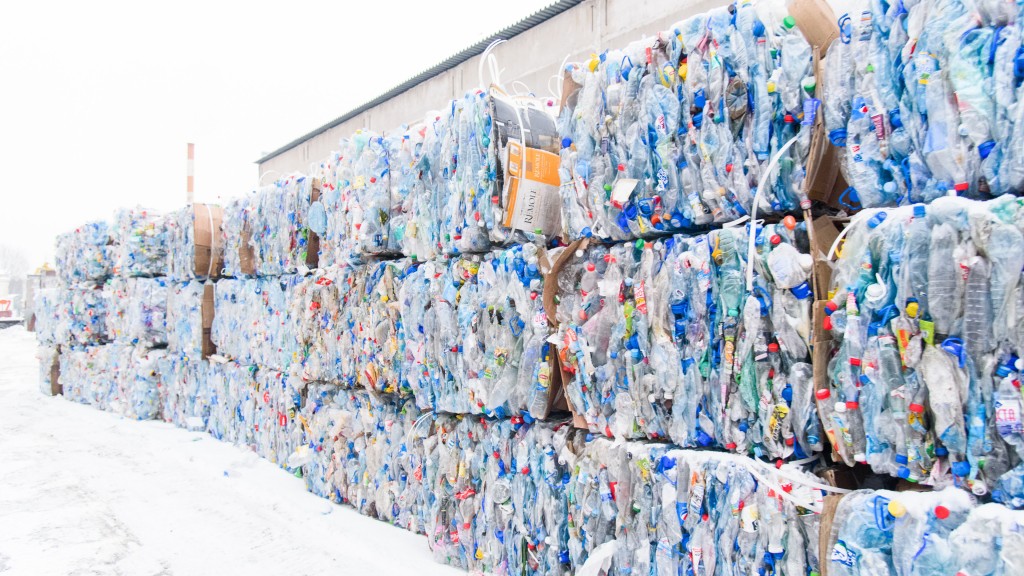(VIDEO) The Coca-Cola Company, Madlib, and Mark Ronson create music from sounds of the plastic recycling process
The Coca-Cola Company has teamed up with two of the most legendary names in the history of music sampling, Mark Ronson and Madlib, to bring a musical experiment to life with the launch of "Recycled Records."
The campaign introduces an original EP made up of the sounds taken from the bottle-to-bottle recycling process, alongside a sound library and a short film. Not only will fans be able to listen to these tracks, but they'll also get the chance to re-mix the very same sound library used by Madlib and Mark Ronson into compositions of their own through an interactive digital beat machine.
Mark Ronson and Madlib chopped, looped, and distorted recycled sounds, vocals, and ambient noises into a collection of seven tracks to celebrate Sprite, Fresca, and Seagram's transition from green to clear packaging. From the percussion of a forklift beeping to the tonal beat of a conveyor belt to the hi-hat of air blown into a plastic bottle, the EP brings to life the recycling process.
"Sampling is an artform which is constantly regenerating. The tiniest sound, whether from an old record or from the world around us, can inspire an entire piece of music. I learnt from my heroes, DJ Premier and Q-Tip, who all made incredible albums from sampling, and it's stayed an integral part of my work up until today," says GRAMMY-award-winning producer and sampling master Mark Ronson.
A sound sample is to music as clear plastic is to recycling. The process of music sampling is ongoing; an old sound is used in a new track, which is flipped again into a newer track, and so on. When green plastic is recycled, it is usually turned into single-use items that do not get recycled again – so, it was time for a moment of clarity. Now Sprite, Fresca, and Seagram's clear plastic bottles increase the likelihood of them being remade into new bottles.
"A great sample doesn't have to come from other music, it just has to make you move," says award-winning pioneer producer and legendary artist, Madlib, also known as the 'Loop Digga,' 'Quasimoto' and many other aliases. "The thud of a plastic bottle going through a recycling facility is, in its own way, a piece of art, it has the ability to transform. Being able to take sounds from the recycling process that are so different from what I've used in the past, and flipping it into a whole new format, is a great example of the versatility of sound. Now any cat has the opportunity to make some dope sounds of their own."
MC Lyte narrates a documentary-style short film that draws a clear connection between the heritage and spirit of music sampling and the closed-loop recycling process. The film, filled with soundscapes, beats, and visuals, showcases the creative process behind "Recycled Records" including extensive sound recordings at recycling facilities and a fascinating glimpse into the studios of Mark Ronson and Madlib.
"The Coca-Cola Company is thrilled to have teamed up with Mark Ronson and Madlib to celebrate our portfolio's transition from green to clear plastic. This sonic partnership is part of The Coca-Cola Company's broader World Without Waste goals," says Kurt Ritter, vice president and general manager of sustainability at The Coca-Cola Company North America. "We're excited about the switch because it increases the amount of high-quality, food-grade recycled plastic available in the marketplace and ultimately allows our brands to use more recycled plastic in their packaging."
Packaging innovation alone will not solve the plastic waste crisis. While the transition away from green plastic is one of many steps needed to drive a circular economy, The Coca-Cola Company recognizes it has a responsibility to keep evolving its process, and this is just one of the steps the company is taking to do so.


